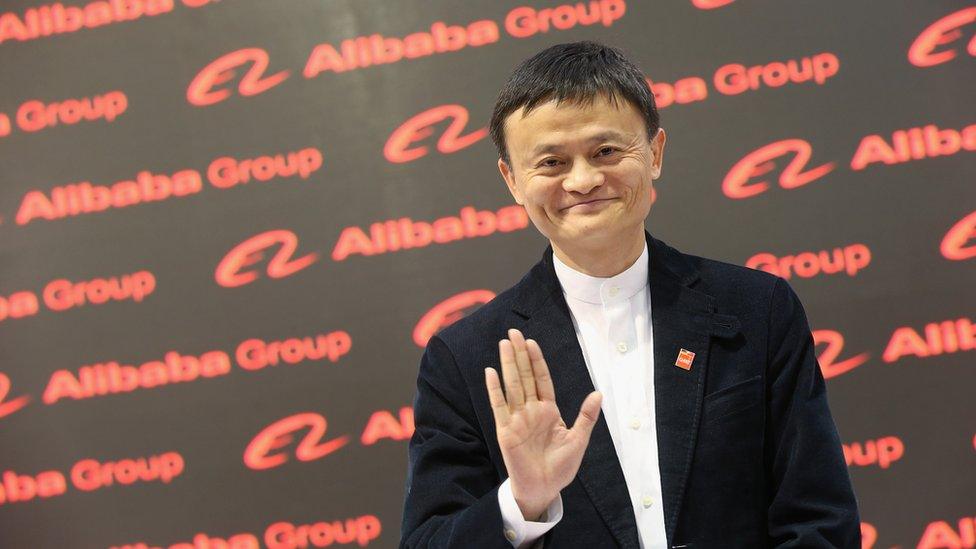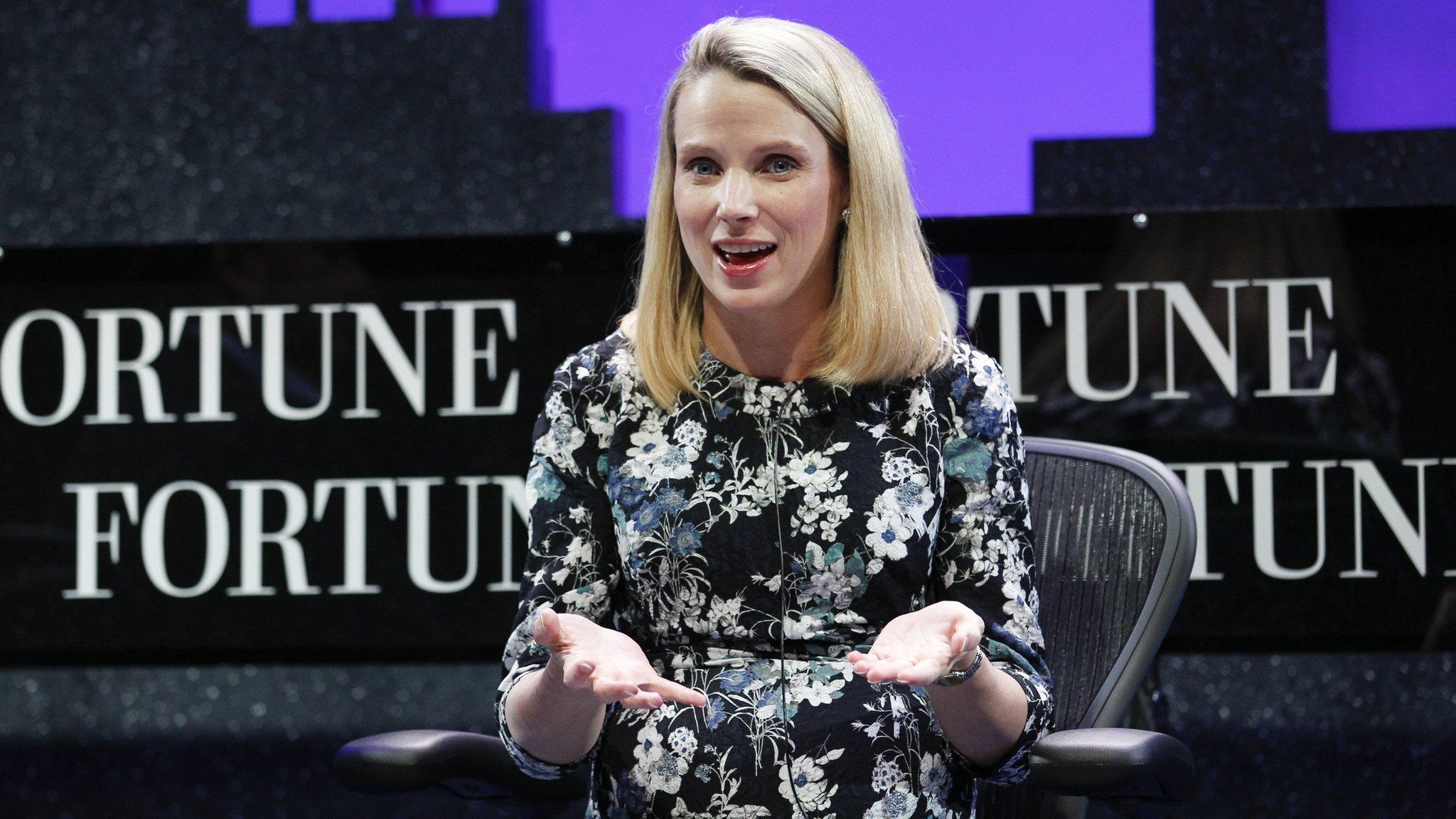Yahoo - where did it all go wrong?
- Published

Yahoo's chief executive Marissa Mayer this week faced calls to step down
During the 90s and early 2000s, Yahoo was a veritable web titan - a leader in email, online news and search.
But the internet media company's fortunes have changed drastically, with sales falling from $7.2bn (£5bn) in 2008 to $4.6bn (£3.1bn) last year.
This is partly because Google and Facebook have come to dominate the online advertising market from where Yahoo derives its revenue.
A series of chief executives has also failed to stem the decline.
This week, Reuters reported investors, external had called for Yahoo's core business to be sold after a slump in its share price.
Some said it could lead to the sacking of current chief executive Marissa Mayer and even the end of the Yahoo brand itself.
So where did it all go wrong for the firm and what lies ahead?

Jerry Yang launched Yahoo! in 1994 but cut ties with the firm in 2012
Inauspicious beginnings?
Dark clouds haven't always surrounded Yahoo.
Founded in 1994 by Stanford University graduates Jerry Yang and David Filo, the firm swiftly grew to become one of the internet's first web portals, competing with the likes of MSN and Lycos.
"It was a one-stop shop bringing together news and other services for users lacking expertise in navigating the internet," said Richard Kramer, founder of Arete Research and a 20-year tech analyst.
The company also survived the dot com crash of 2000 and its sales climbed tenfold, external between 2001 and 2008.
However, Mr Kramer said that over time the concept of web portals had become "outmoded".
"In its main search and display ad businesses, Yahoo found itself being overtaken by rivals like Gmail and Hotmail or younger upstarts, messaging apps like Whatsapp or WeChat," he said.
"News aggregation came from Facebook, Twitter and new digital channels like Huffington Post or Vice."
He added: "Yahoo also fell behind the curve in search - partnering with Microsoft, which had tried to buy it - while it was slow to scale up in video and mobile."

The firm has struggled to keep up with rivals such as Google and Facebook
Left behind?
The problem was Yahoo generated most of its revenue by selling advertising space on such platforms - and as its audience drifted to other sites, its sales faltered.
Highlighting the discord, chief executive Mr Yang stepped down, external in December 2008 and the firm laid off 7% of its workforce a month later.
The company needed to reinvent itself - but even Mr Yang's replacement, Carole Bartz, admitted she had struggled with the question, external of what Yahoo is when she took over in 2009.
"We're not a search company. We're not a display [advertising] company. We're a broad-based internet technology company that serves up the most interesting content on the internet to 600 million people," she later said.
Mr Kramer said the high level of the churn at the top at the firm did not help either.
Ms Bartz soon lost her job in September 2011 and her replacement, Scott Thompson, only lasted four months before resigning over claims he falsified his resumé.
"They went through an endless succession of management changes at a time when they really needed to steady the ship," Mr Kramer said.
"They were also besieged by activist investors calling for change, continuing the cycle of management churn."

Most of the internet company's $33bn (£21.8bn) value is attributed to its shareholding in Alibaba, a Chinese e-commerce firm
What next?
Ms Mayer, who has been in situ since July 2012, now faces a similar revolt.
She has tried to bolster Yahoo by acquiring firms such as Flurry, a mobile analytics service, and Tumblr, the blogging service.
But its core internet business continues to lose money. In fact, most of the internet company's $33bn (£21.8bn) value is attributed to its shareholding in Alibaba, the Chinese e-commerce giant.
After reversing a plan to sell the stake, Ms Mayer has adopted a strategy to spin off the core business into a new company
But on Monday, Reuters reported several major Yahoo shareholders wanted Ms Mayer to sell the core business outright.
A source said she had the support of her board, but multiple investors have called for her resignation, external.
Mr Kramer says the choice is a simple one: "Either the CEO needs to put herself out of a job by selling the business, or be given room to pursue a fresh strategy, with restructuring already promised to be announced with the 2015 results."
He added: "The media likes to say Yahoo is a turnaround, but that's the wrong way to think about it.
"It really needs to grow - or buy - entirely new businesses to bolt on to its existing franchise, to attract new audiences.
"This is what Mayer is a trying to do, even if the execution of the plans has been poor."
- Published5 January 2016

- Published9 December 2015

- Published11 December 2015

- Published23 November 2015
